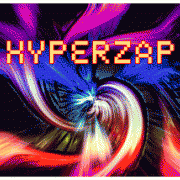-
Posts
519 -
Joined
-
Last visited
-
Days Won
3
twitchyliquid64 last won the day on November 24 2012
twitchyliquid64 had the most liked content!
Profile Information
-
Member Title
Peace. Always.
twitchyliquid64's Achievements

Universalist (7/7)
23
Reputation
-
 j0kky reacted to a post in a topic:
TCP P2P, Event driven!
j0kky reacted to a post in a topic:
TCP P2P, Event driven!
-
Think I found it unless I am mistaken? https://msdn.microsoft.com/en-us/library/bb176688(v=office.12).aspx
-
Whoa totally missed that! Thanks! Any idea where I can get a list of the other properties of the oOL_Item object? (ie: $oOL_Item.SenderName, couldnt find a list in the URL linked in the example code), or even better, is there a way to print it out in autoit (like python's dir function)?
-
Hi water, I'm trying to fire a Autoit function (to trigger further automation) when I recieve an email, but cannot find a function for it. Is this supported in the UDF? Thanks, -twitchy
-
 TomasRedwewZembews reacted to a post in a topic:
Proxy Checker
TomasRedwewZembews reacted to a post in a topic:
Proxy Checker
-
Can you elaborate on what the $pb variable is? Im not sure if you are doing this, but if you only only update the progress in the GUI every now and then rather then every iteration or every 10 iterations you will also find it alot faster. I tend to use AdLibRegister functions to update GUIs. For the most part, your algorithm seems to have time complexity: O(n) where n is the number of elements in the CSV. With that in mind, program performance should be reliably linear, so massive fluctuations are pretty analogous. Are you feeding differently sized CSVs? are you sure your machine is not doing other stuff in the background?
-

OpenGL UDFs (2.0) for AutoIt - Examples included
twitchyliquid64 replied to minxomat's topic in AutoIt Example Scripts
<troll> I thought Autoit was at version 3 .... </troll> -
I made this a few years ago but no one used it. i can add new features as required. i also have a fetching API. autoit-repository.appspot.com/
-
 Mobius reacted to a post in a topic:
How can I compile without encrypting the exe
Mobius reacted to a post in a topic:
How can I compile without encrypting the exe
-
I realised how much of a retard I was as soon as you said it. AutoIt uses STDCALL by default doesnt it? Thanks trancexx and Shaggi for your help! For completeness, here is the final solution: To pointer* pass you setup a struct and pass the pointer to the struct. ; int BN_dec2bn(BIGNUM **a, const char *str); Func BigNum_Assign($BNNum, $sNum) $struct = DllStructCreate("ptr num;") DllStructSetData($struct, "num", $BNNum) ;Passing the pointer from this didnt work either. $retval = DllCall($_BigNum_DLL, "int:cdecl", "BN_dec2bn", "ptr", DllStructGetPtr($struct), "str", $sNum) ConsoleWrite("RETVAL: " & $retval[0] & @CRLF) EndFunc
-
Thankyou Shaggi! I made the changes you recommended, however I am still getting hard crashes. <snip> Func BigNum_New() $val = DllCall($_BigNum_DLL, "ptr", "BN_new") return $val[0] EndFunc ; int BN_dec2bn(BIGNUM **a, const char *str); Func BigNum_Assign($BNNum, $sNum) $struct = DllStructCreate("ptr num;") DllStructSetData($struct, "num", $BNNum) ;Passing the pointer from this didnt work either. $retval = DllCall($_BigNum_DLL, "int", "BN_dec2bn", "ptr*", DllStructGetPtr($struct), "str", $sNum) ConsoleWrite("RETVAL: " & $retval[0] & @CRLF) EndFunc $test = BigNum_New() BigNum_Assign($test, "1000") 1. Using DllStructGetPtr($struct, 1) instead of DllStructGetPtr($struct) makes no difference 2. Using "ptr" instead of "ptr*" makes no difference.
-
Hi all, I have a DLL Function which requires the type BIGNUM**. I have tried multiple ways, but I just cant get it to work. Currently I am: 1. Making a DLLCall() to get a pointer to a new BigNum Structure. 2. Making another DLL call to assign a number to that structure <--- AutoIt hard crash at this point. So does anyone know how to pass a pointer to a pointer via DLLCall? This is what I have so far (dw, only 33 lines) $_BigNum_DLL = DllOpen("libeay32.dll") ; BIGNUM *BN_new(void); Func BigNum_New() $val = DllCall($_BigNum_DLL, "ptr", "BN_new") return SetError( @error, @extended, $val) EndFunc ; int BN_dec2bn(BIGNUM **a, const char *str); Func BigNum_Assign($BNNum, $sNum) ;$struct = DllStructCreate("ptr num;") ;DllStructSetData($struct, "num", $BNNum) ;Passing the pointer from this didnt work either. $retval = DllCall($_BigNum_DLL, "int", "BN_dec2bn", "ptr*", $BNNum, "str", $sNum) ConsoleWrite("RETVAL: " & $retval & @CRLF) EndFunc $test = BigNum_New() BigNum_Assign($test, "1000") Thanks in advance for all the help you can give me. Having not used DLLCall much, I am stumped.
-

How can I compile without encrypting the exe
twitchyliquid64 replied to MattH's topic in AutoIt General Help and Support
brewman, 3.2.6.0 introduced tokenisation into the compilation process. i know people have said its bytecode but its not, there is a very clear difference. the difference is wether you do parsing at compile or runtime. sorry for being pedantic. -
what's the permissions/account the script is running under?
-

How can I compile without encrypting the exe
twitchyliquid64 replied to MattH's topic in AutoIt General Help and Support
BrewManNH, autoit does not use bytecode. it simply stores the tokenised script in the EXE, with the parsing done it runtime. the only exception is wierd things like fileinstall(), i have no idea how they work. fyi: bytecode - a series of stateless instructions for a virtual machine. sometimes given structures or headers. the key feature is that no parsing is required for execution. tokens - a linear array of critical elements of the script. a lot of work is still required at runtime for execution. -
hi, is it possible to wait 4 days? i will be able to get this working for you after then. sorry.



